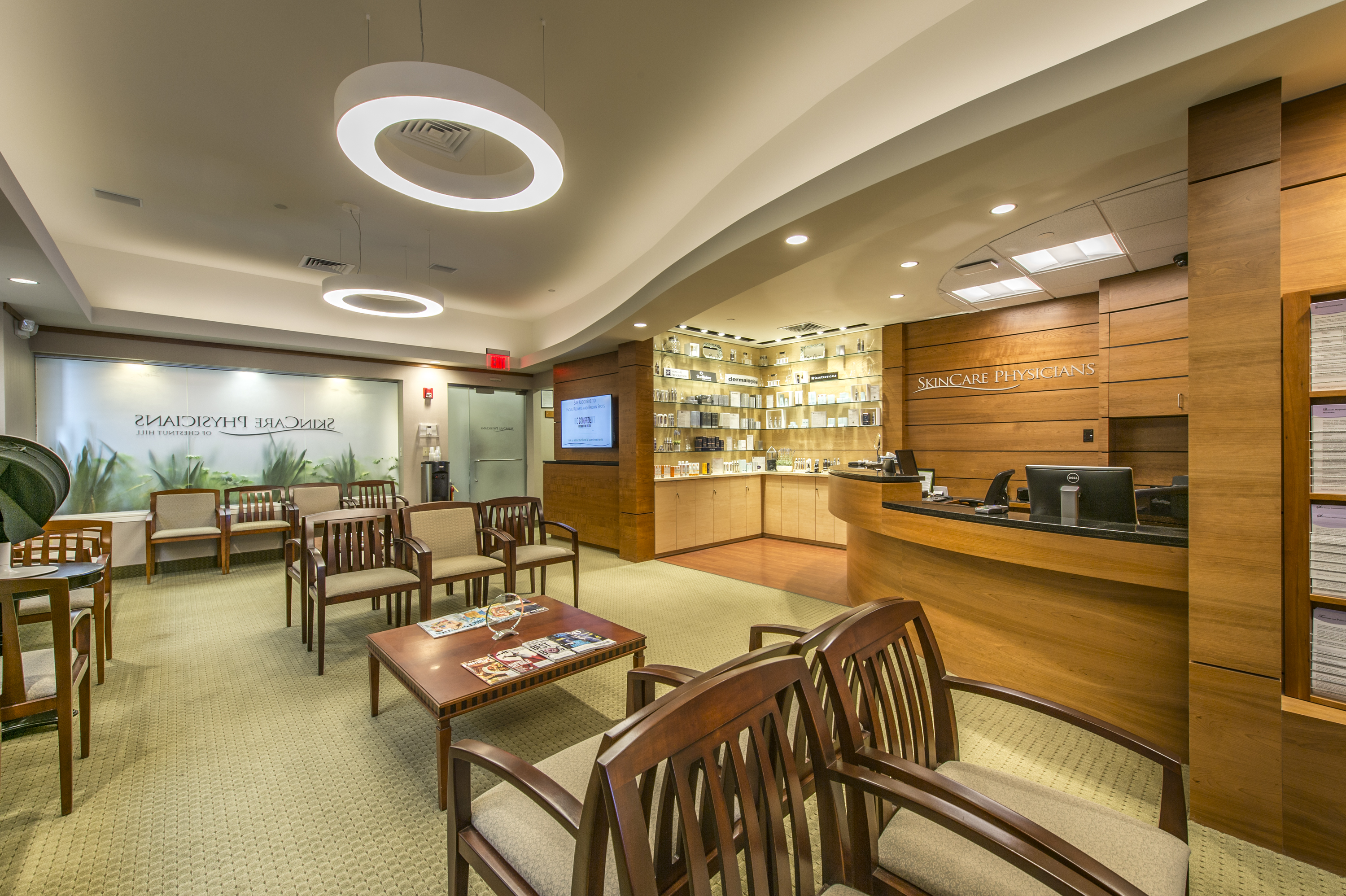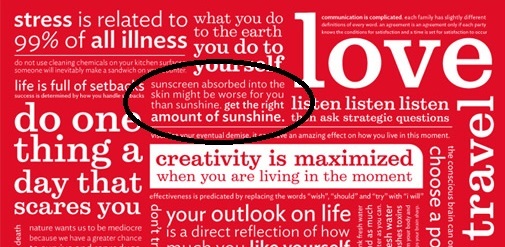Get your medical advice from your physician, not a Lululemon bag
In the year since this blog post was first published, Lululemon’s inaccurate and potentially dangerous sunscreen advice continues to be printed on the bags that they hand out every day to customers. Lululemon WAS informed by the American Academy of Dermatology last year that its ‘sunscreen is dangerous’ quote printed on all its bags was spreading misinformation, and the company admitted that the message is “not research based” . If you are concerned about your risk of skin cancer and the potentially dangerous medical information Lululemon continues to dispense, email their ‘guest education center’ at [email protected] to voice your concerns. Pass this along!
The popular yoga and lifestyle wear retailer, Lululemon, has a manifesto, and it’s printed on every one of their bags. You’ve likely seen these bags or re-used them yourself! They make terrific totes and lunch bags. According to their website, Lululemon is “passionate about sweating every day and we want the world to know it. Breathing deeply, drinking water and getting outside also top the list of things we can’t live without. Get to know our manifesto and learn a little more about what lights our fire.” Unfortunately, Lululemon’s newest manifesto, which is currently printed on their bags, includes inaccurate warnings and potential misinformation about sunscreens!
Lululemon’s most recently-released manifesto reads: “Sunscreen absorbed into the skin might be worse for you than sunshine.”
It’s unusual for a major retailer to be offering medical advice, and it does a disservice to their clients who might be harmed by such advice! Business Insider has asked Lululemon to comment on this sunscreen advice, and they seemed to stand by their manifesto, stating, “The manifesto design that goes on our bags is a collection of statements that are ever-evolving and intended to spark conversation that is relevant at the time.”
Skin cancer remains the most common form of cancer in the United States, and we dermatologists at SkinCare Physicians treat patients for this disfiguring and potentially deadly form of cancer every day. And it has been clearly shown that regular sunscreen use and regular skin examinations remain the very best way to help lower skin cancer rates.
When used appropriately on the skin, there is no evidence that the ingredients in sunscreens are harmful. This holds true even for the class of sunscreen ingredients, like oxybenzone, about which concerns as endocrine disruptors have been raised. For patients who are worried about the chemicals in sunscreens, there are resources such as those published by the Environmental Working Group that can guide them in choosing among the many excellent sunscreens that are available.
Concerns that sunscreen may cause Vitamin D deficiency should not stop patients from applying sunscreens. According to the Institute of Medicine’s 2011 report on Vitamin D and calcium intake, most Americans and Canadians get plenty of Vitamin D from dietary sources, and blood levels among most are within the normal range. And fair-skinned individuals absorb maximal Vitamin D after just 15 minutes of sun exposure: sunscreens aren’t likely to have a great impact on that!
Bottom line: sunscreens can prevent skin cancer and protect against sun damage. If you have questions or concerns about skin cancer prevention, speak with your dermatologist at SkinCare Physicians rather than relying on advice on a yoga retailer’s bag!
Editor’s note: This blog was originally published on July 17, 2014.
Photo Source: lululemon.com




Leave a Reply